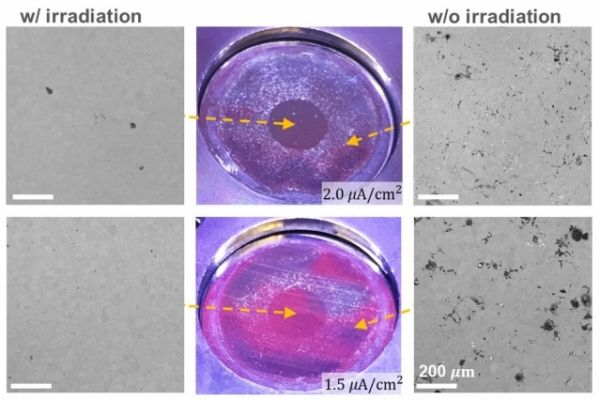Radiation nearly always degrades the materials exposed to it, hastening their deterioration and requiring replacement of key components in high-radiation environments such as nuclear reactors.
Radiation nearly always degrades the materials exposed to it, hastening their deterioration and requiring replacement of key components in high-radiation environments such as nuclear reactors. But for certain alloys that could be used in fission or fusion reactors, the opposite turns out to be true: Researchers at MIT and in California have now found that instead of hastening the material’s degradation, radiation actually improves its resistance, potentially doubling the material’s useful lifetime.
The finding could be a boon for some new, cutting-edge reactor designs, including molten-salt-cooled fission reactors, and new fusion reactors such as the ARC design being developed by MIT and Commonwealth Fusion Systems.
The finding, which came as a surprise to nuclear scientists, is reported today in the journal Nature Communications, in a paper by MIT professor of nuclear science and engineering Michael Short, graduate student Weiyue Zhou, and five others at MIT and at the Lawrence Berkeley National Laboratory.
Read more at Massachusetts Institute of Technology
Image: These optical and scanning electron microscope images show irradiated and unirradiated zones of a nickel-chromium alloy. The left side shows examples of foils with irradiation; instead of degrading the material as it almost always does, the radiation actually makes it stronger by reducing the rate of corrosion. Courtesy of the researchers




